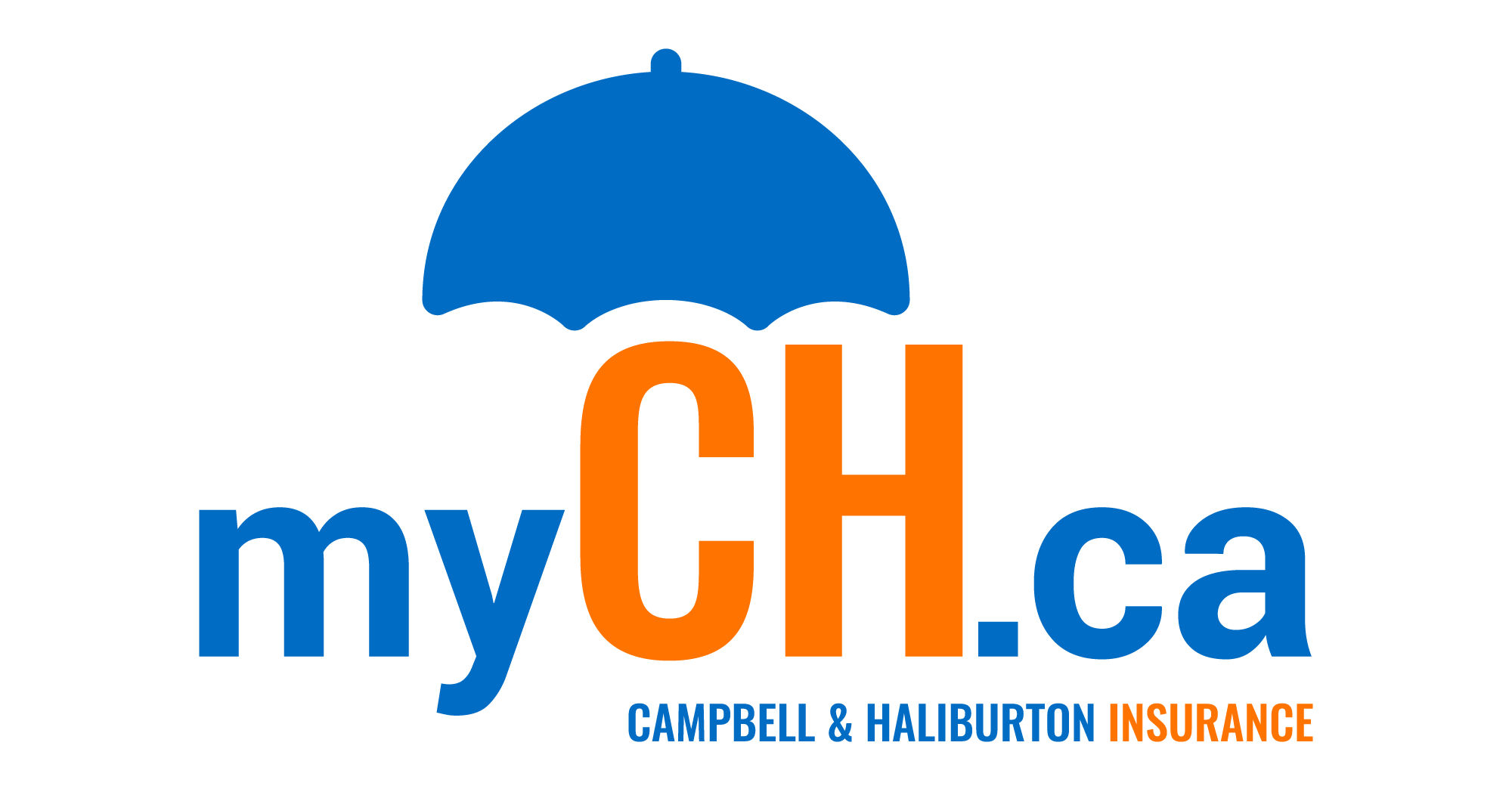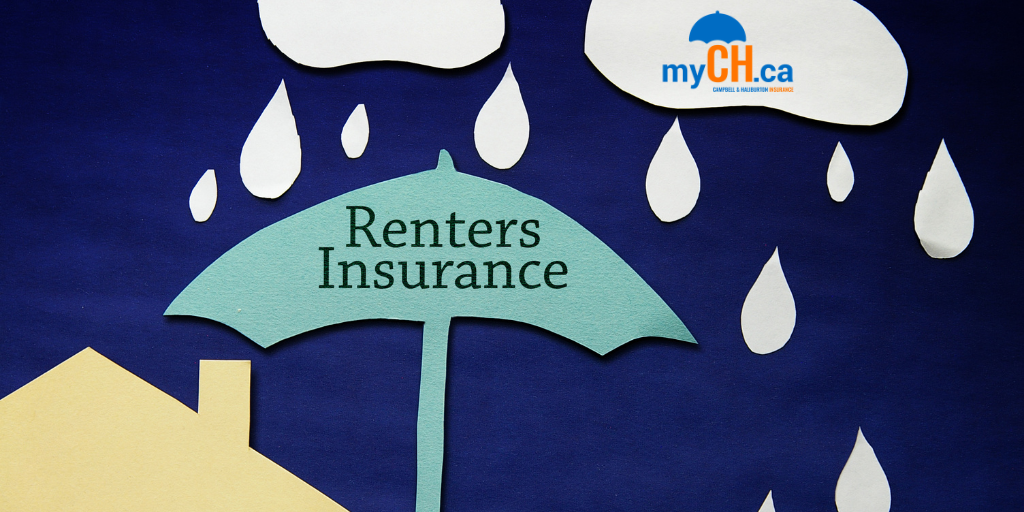You have found a place to rent and you have even arranged for movers. Great! You also downloaded an app to help you arrange your furniture. Fun! But, what about renter’s insurance?
Renter’s Insurance
What is renter’s or tenant insurance? It might sound scary, complicated, and worse, expensive. However, people often find it to be less expensive than first thought.
At Campbell & Haliburton Insurance, we can help unravel the mystery of renter’s insurance. Most renter’s insurance policies will protect you in two important ways: your contents and your liability.
Caveat: There are a number of insurance companies that sell renter’s insurance here in Canada. There are similarities between them but also differences. This is not designed to be the definitive word on what each individual policy covers. Rather, it’s a “broad brush” overview of renter’s insurance. For specifics on what your policy does, and does not provide, please speak with your broker.
Contents Insurance
The first thing that renter’s insurance protects is your belongings. However, there are two major questions that you need to answer when arranging contents insurance.

1. How Much Insurance Do I Need?
This can be a difficult question to answer. After all, most people do not purchase all their belongings at once. We acquire them over time, some new, some second hand. It can seem like an impossible task to come up with how much you have spent on your belongings.
Ask yourself this question: “If I had to buy everything new, what would the cost be?” Now, renter’s insurance policies are based on “replacement cost.” Replacement cost is the amount that would cover anything you needed to replace with new items.
Many people fall into the trap of thinking, “my things are old; they are not worth that much.” That may be true, but when it comes to insurance ask the question: “what would it cost if you needed to buy everything brand new?” Therefore, remember that most policies will allow you to purchase the same kind and quality as what you had. So, if that old couch is very well made, you would be able to purchase the same quality of couch in the event of a claim.
It should be noted that many insurance companies have a minimum amount of contents insurance they will provide. For example, $30,000 is quite common. Would that amount be enough? It is a good starting point, but everyone has a unique set of belongings. Further, everyone has a different set of needs.
One tool that is available is SGI Canada’s record of belongings. While it is not strictly necessary to complete a record like this, it may be a valuable tool in determining how much insurance you need.
2. What Kind Of Insurance Do I Need?
You have determined how much insurance you require. Now the next question to ask is what kind of insurance will best meet your needs.
There are two different types of contents insurance, one is a more basic form of insurance and the other is a more comprehensive insurance.
Named Perils Insurance
The first form of insurance is named perils. However, it has different names depending on the insurance company. It may be called Pak I or Broad Form. Each company has a different name. Therefore, don’t rely on the name, just understand what it actually provides.
As the name implies “Named Perils,” it provides insurance for a specific number of perils. A peril is an event that is unexpected and accidental.
Common named perils would include:
- Fire
- Lightning
- Explosion
- Smoke
- Falling Object
- Impact of Aircraft, Spacecraft of Land Vehicle
- Wind/Hail
- Water Escape
- Vandalism
- Theft
For a named perils policy to respond, a specific listed named perils would have to occur. If something other than one of these specially listed things happened, there is no insurance. Named Perils policies often define some of the terms. Further, they restrict what is, and is not, covered by them.
Comprehensive Perils Insurance
The second form of contents insurance is comprehensive insurance. As the name implies this is a much broader form of insurance than named perils.
Named Perils Insurance specifically tells you what is covered. However, Comprehensive Perils Insurance tells you what is not covered. It is often called all-risk insurance. This is because it covers all risks except those specifically excluded.
Typical exclusions
- Flooding
- Seepage
- Exclusions when the property is vacant
- Pet Damage
- Normal Wear and Tear
Day-To-Day Advantages
- The first is a philosophical difference. With named perils insurance, the onus is on the insured (person who purchased the insurance) to show where something is covered. With comprehensive insurance, that responsibility is shifted to the insurance company. Unless they can point to a specific exclusion, the insurance company must pay the loss.
- Accidental Damage. Comprehensive Insurance typically provides insurance for accidental damage. However, named perils do not. For example, let’s say a person dropped a big-screen television or spilled a glass of red wine on the couch. Then most comprehensive insurance policies would provide coverage, whereas named perils would often not.
- Mysterious Disappearance. Named Perils policies typically cover if things are stolen, but not if they are lost. Comprehensive insurance often covers loss as well. For example, let’s say your diamond ring goes missing or the gem falls out of it. Comprehensive insurance would usually respond and pay the claim, but named perils would likely not.
- Smoke. Some named perils policies provide very restrictive coverage for smoke damage. However, comprehensive insurance provides better coverage for things like candle smoke.
So Which Policy Is Better For You?
Comprehensive insurance is a significantly better policy than a Named Perils. Typically, the price difference, on a renter’s policy, is not that much between the two. If your budget allows for it, we recommend Comprehensive Insurance.
With renter’s insurance, as with most kinds of insurance, there are a few things to be aware of:
- Insurance policies carry with them a deductible. A deductible is a portion that you must pay in the event of a loss. For example, if you have a $500 deductible, you are responsible for any amounts up to the first $500 of any claim.
- Whenever you file a claim, you can expect to see your premium increase.
- Most policies have specific items that they put limits of insurance on. For example, there are maximums that will be paid out for things such as jewelry, stamp or coin collections, or bicycles etc. We recommend that you review these with your broker. Further, you can contact one of our helpful insurance brokers at Campbell & Haliburton!

Liability Insurance
This protects you if others are harmed due to your negligence. Liability insurance has two “triggers” that they use.
- Bodily Injury: someone is injured because of what you did or did not do. Suppose you are renting a house and are responsible for keeping the sidewalk shoveled and safe. If someone slips on the ice and is injured, you might be found liable. However, your renter’s insurance provides liability insurance to protect you in this situation.
- Property damage: when there is damage to someone else’s property due to your actions. For example, let’s say you are cooking and cause a fire. The landlord might want you (or your insurance company) to pay for any damages to their house.
Liability Insurance is generally included in a renter’s insurance policy.
A Few Things To Think Of
- Cost – In Canada, liability insurance on a renter’s policy is relatively inexpensive. Many policies provide you with $1,000,000 of liability insurance. However, the cost to increase this is generally very low. Since liability insurance is designed to protect you from potentially catastrophic events, we recommend increasing the amount of liability insurance.
- The Fine Print – Some liability insurance policies provide restrictions on when it will payout. We strongly recommend that you speak with your insurance broker to ensure that you are aware of any limitations.
Therefore, renter’s insurance is a relatively cost-effective way to not only protect yourself in the event the unthinkable happens.
Are you ready for a personalized insurance quote? Our easy user-friendly website makes this both easy and convenient. Do you need more information? Please contact Campbell & Haliburton, one of our expert insurance brokers.
If you don’t have an insurance broker and want to talk to someone who is truly passionate about your insurance, contact us at Campbell & Haliburton Insurance. We would love to talk to you.
Office Manager & Licensed Insurance Broker

